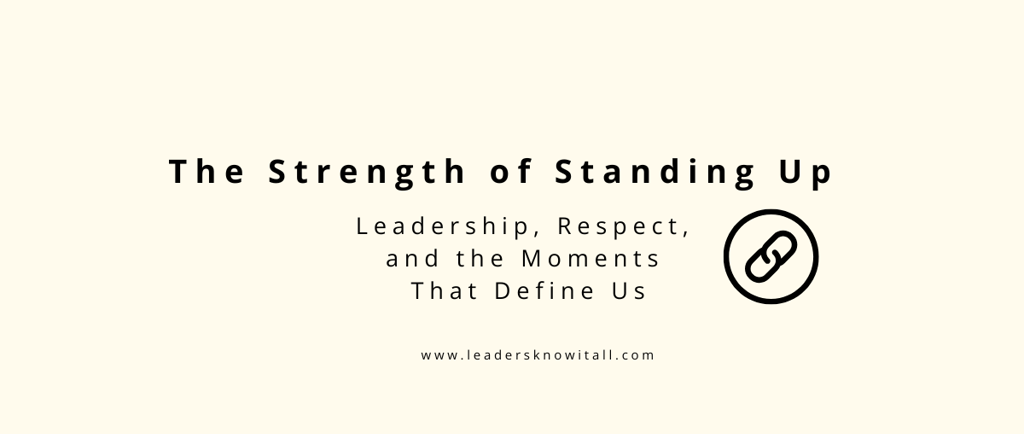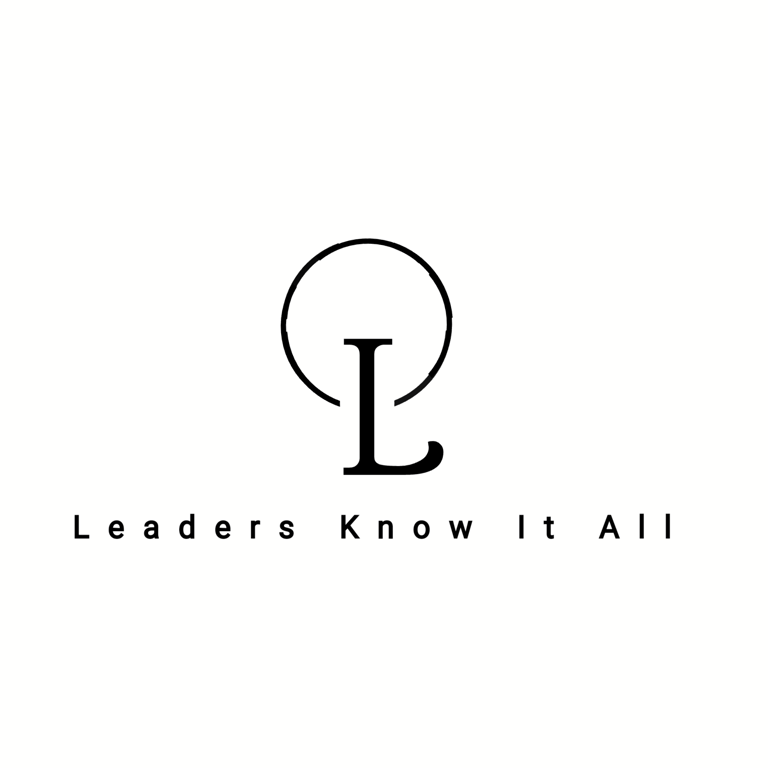The Strength of Standing Up: Leadership, Respect, and the Moments That Define Us
It’s not weakness to stand up for yourself or your team; it’s strength. It’s not confrontation; it’s clarity. It’s not about feeding your ego; it’s about honoring your values.
leaders know it all
5/31/20253 min read


The Strength of Standing Up: Leadership, Respect, and the Moments That Define Us
When you stand representing an organization, a team, or a project, you carry much more than a title or a set of tasks. You carry your identity, your integrity, and the respect you’ve earned through trust, effort, and character.
Every day, in professional spaces, we navigate complex relationships — with colleagues, clients, partners, and stakeholders. We invest time, energy, and heart into building something that matters. We strive to bring value, solve problems, and contribute meaningfully. But no matter how dedicated or principled you are, there will be moments when someone’s words, assumptions, or judgments cut deep. Moments when your efforts are undervalued, your intentions are misunderstood, or your dignity is overlooked.
These are not small moments. These are the moments that test you.
And it becomes your responsibility — not out of ego, but out of principle — to stand up. To help the other person understand, with clarity and calm, that:
✅ What they have hurt cannot always be repaired easily
Trust, once fractured, is not quickly restored. Dismissive words, public criticisms, or careless assumptions may seem like fleeting moments to the one delivering them, but to the one on the receiving end, they can leave a lasting mark. A project can recover, a conversation can move on, but the sense of being unseen or disrespected often lingers.
✅ We may forget the exact words, but we will never forget how they made us feel
People don’t cling to transcripts; they cling to emotions. They remember the tightening in their chest when they were humiliated in a meeting, the sting of being sidelined, or the warmth of being acknowledged and supported. As leaders and collaborators, we need to recognize the emotional undercurrent in every interaction. Respect is not a technical checkbox; it’s a lived experience.
✅ Assuming creates distance; resolving and clarifying builds bridges
Assumptions are easy. They’re shortcuts our brains take when we’re under pressure or feeling impatient. But assumptions can widen gaps — between teams, between leaders and their people, between collaborators with shared goals. Clarification takes more time, but it creates connection. It says, “I’m willing to understand you. I’m willing to listen.” And in that, relationships are strengthened.
✅ Before reacting, pause and reflect — because even when damages are patched, the scars remain
It’s natural to feel defensive when challenged or hurt. But reacting impulsively can escalate situations and deepen harm. Leadership requires the discipline of the pause — the ability to step back, breathe, and respond with intention. This is not weakness; this is mastery. Remember: apologies can repair some damage, but scars — emotional or professional — stay with people. Choose your responses with care.
✅ Belittling others doesn’t elevate you — it only exposes your own insecurities
Some people believe that dominance, criticism, or control demonstrates strength. But true strength shows up in generosity, patience, and humility. Belittling a colleague or dismissing someone’s input doesn’t showcase your authority; it reveals where you feel small inside. The most respected leaders lift others up, not push them down.
✅ True qualification shows in how you treat others — especially those who are still learning, those who are different from you, or those who challenge you
It’s easy to be kind to people who agree with us or admire us. But real leadership shines in the moments when we face disagreement, diversity, or challenge. How do you treat the intern who’s just starting? The vendor from a different culture? The colleague whose style or ideas clash with yours? These interactions reveal your character more than your résumé ever could.
We all work in environments where tensions rise, deadlines loom, and differences appear. It’s tempting, in the rush of work, to focus only on outputs, KPIs, and results. But the measure of who we are — as professionals, as leaders, as people — is how we handle those moments of friction and misunderstanding.
You can’t always control what others say or do. You can’t stop someone from making assumptions or passing judgments. But you can control who you become in the process.
You can decide to speak up when something crosses a line, not because you crave conflict, but because you believe in clarity.
You can choose to defend your team or your project when their value is diminished, not because you need to prove something, but because you stand for fairness.
You can choose to respond with dignity, even when you’re tempted to retaliate.
In leadership, in collaboration, in life — respect is not a decoration; it’s the foundation.
It’s not weakness to stand up for yourself or your team; it’s strength.
It’s not confrontation; it’s clarity.
It’s not about feeding your ego; it’s about honoring your values.
So, when those difficult moments come — and they will come — remember that how you handle them defines you more than the easiest successes ever could. Let’s build workplaces where respect isn’t conditional, where people are seen and valued, and where the strength to stand up comes from principle, not pride.
Because at the end of the day, it’s not just about what we achieve — it’s about who we are while we achieve it.
Love and Light
LKIA
For more such leadership blogs explore www.leadersknowitall.com
